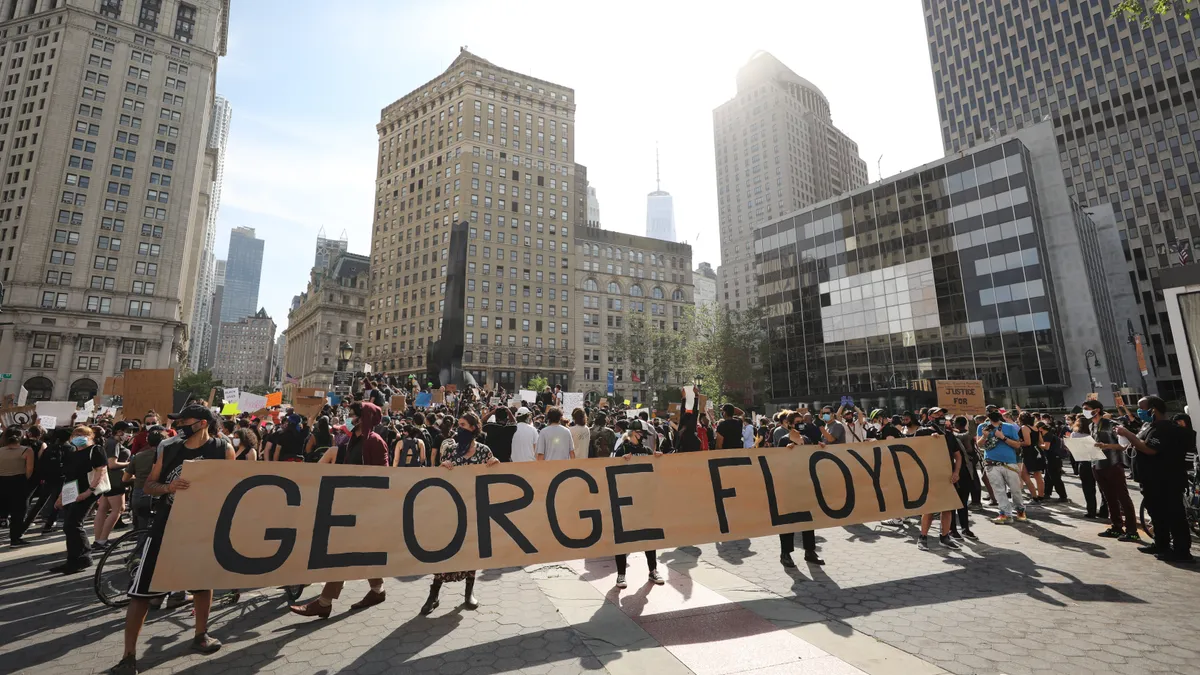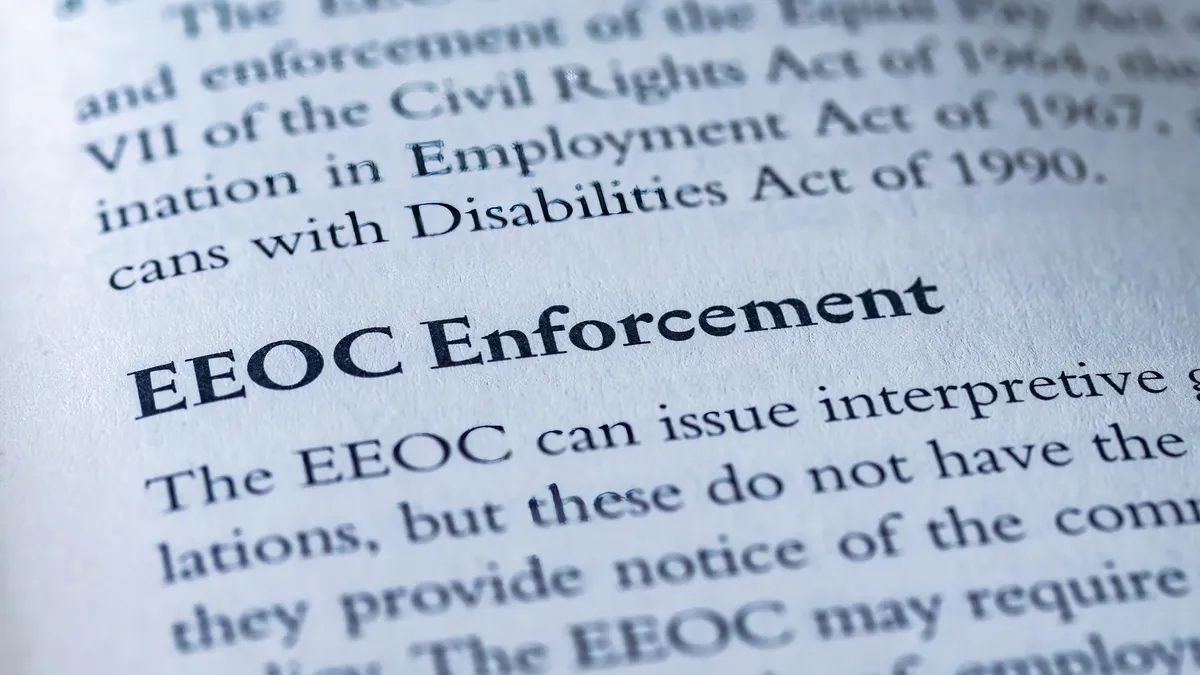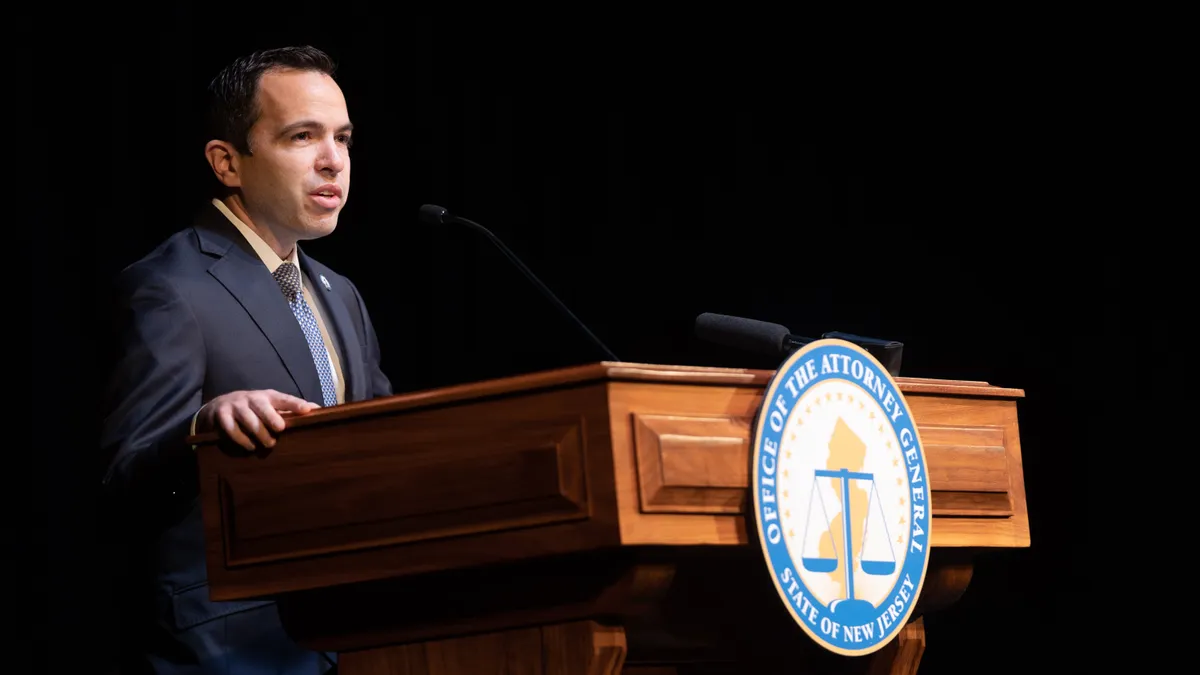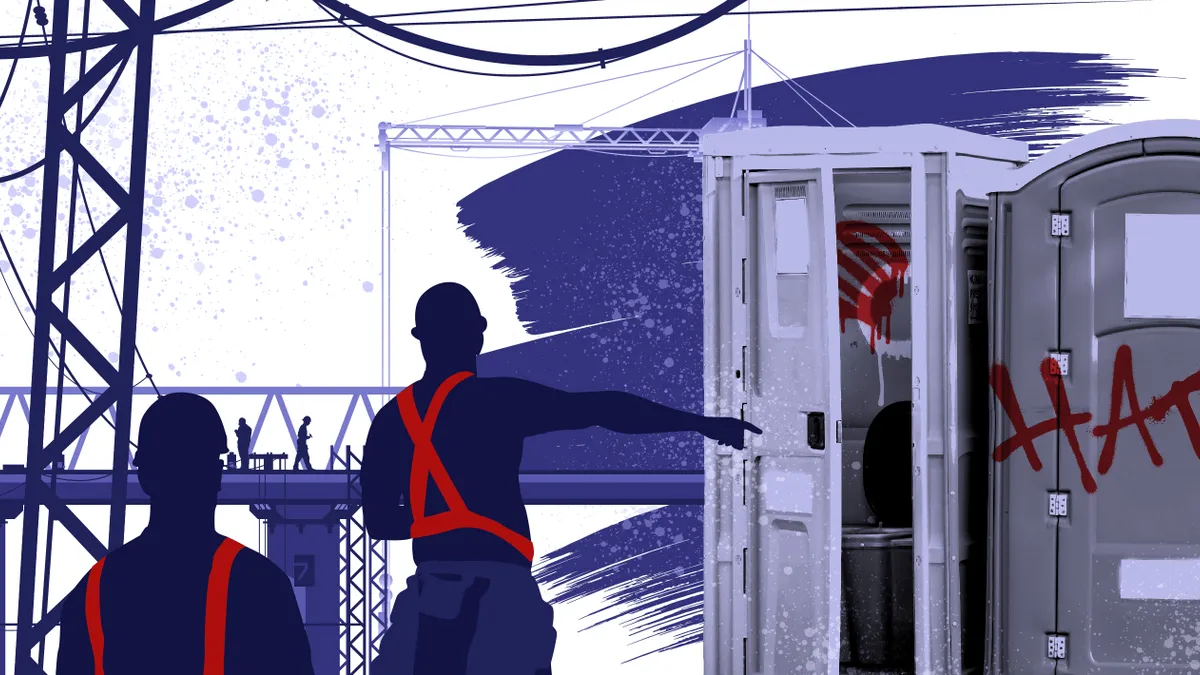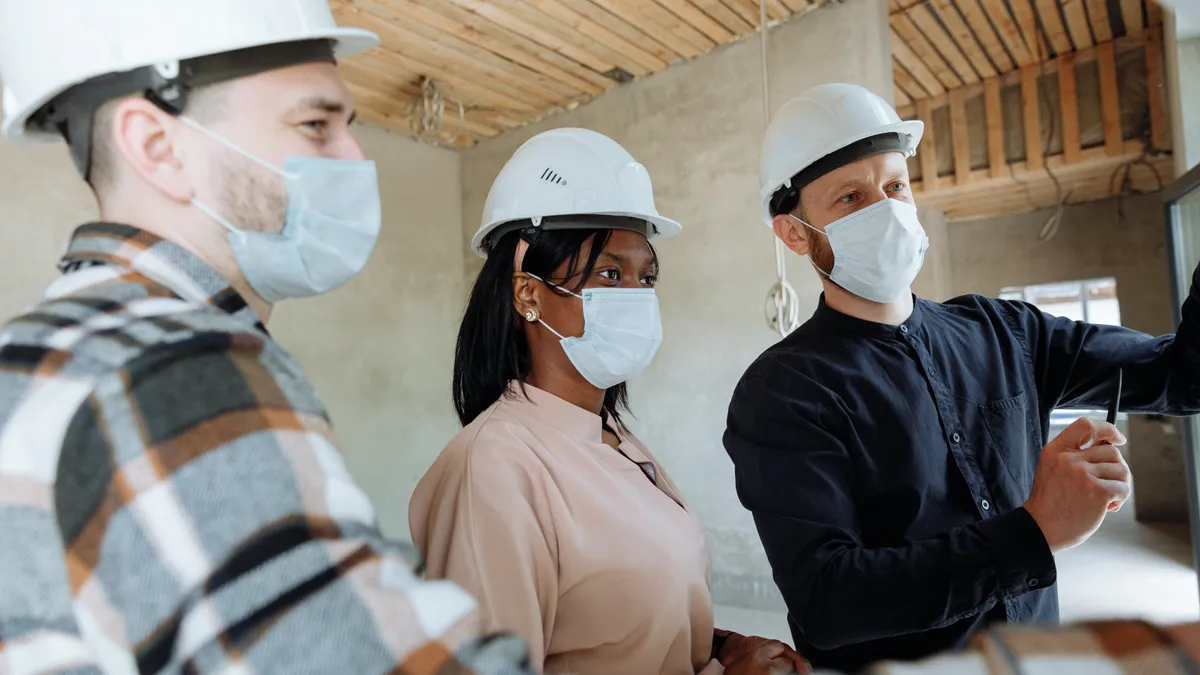Editor’s note: This story includes imagery and references to racist incidents that could be disturbing to readers.
UPDATE: July 7, 2023: A Black worker who sued Bechtel and ExxonMobil for alleged employment discrimination has dropped his suit. According to court documents, the worker filed for a voluntary dismissal of the complaint, without prejudice, on June 27. The filing didn’t provide a reason for the withdrawal.
The Federal Rules of Civil Procedure, which apply to federal filings, allow a plaintiff to file for a voluntary dismissal of a suit if the defendant hasn’t yet responded or filed its own motion for summary judgment, which hadn’t yet happened in the case. The voluntary dismissal without prejudice means the suit can be refiled at a later date.
The original article appears below.
Dive Brief:
- A federal lawsuit filed in Texas June 15 alleges Bechtel and ExxonMobil fired a Black foreman as retaliation for complaining when he found feces and a drawing of a noose in his workspace.
- Bechtel initially employed the worker as a journeyman electrician at an ExxonMobil olefins plant in Baytown, Texas, before the contractor promoted him to foreman in December 2018, according to the suit.
- Shortly after that promotion, the worker found feces scattered around his assigned area, known as the “print shack,” according to the suit. About six months later, the employee reported to work and found a drawing of a noose placed on the print shack, the complaint alleges. Shortly after he complained about the noose, he was given the choice of being demoted or laid off, according to the suit.
Dive Insight:
A spokesperson for Irving, Texas-based ExxonMobil said the firm has a policy of not commenting on personnel matters and issues involving contractors and litigation, but noted the firm “has zero tolerance for harassment and discrimination in any form by or toward employees, contractors, suppliers or customers.”
A spokesperson for Reston, Virginia-based Bechtel said, “The conduct alleged in the complaint violates our policies and work rules and is not tolerated. We take such allegations seriously and will promptly investigate.”
The suit, filed in federal court in the Southern District of Texas, said that the worker, one of the few Black people in a position of authority at the site, complained after the feces incident and said he felt it was racially motivated.
A Bechtel safety supervisor responded by taking pictures of the vandalism and generated a formal report from Bechtel to ExxonMobil, the suit claimed.
Two months later, when the worker inquired about the status of the investigation, the general foreman at the site told him it was still ongoing, according to the suit. Then, in June 2019, the worker found the noose drawing, the suit said, and reported it to his supervisor.
Within weeks of that incident, a Bechtel site superintendent gave the Black foreman an ultimatum to accept a demotion back to the role of journeyman or be laid off, according to the complaint, which also claimed the foreman was the only employee at the plant to receive such an edict.
Because the worker no longer felt safe at work after the incidents, he saw being laid off as the only reasonable choice, the complaint said.
The lawsuit didn’t say whether the electrician was working in construction or in an ongoing maintenance capacity. According to a press release, Bechtel was awarded a contract to build an ethylene plant at the site in 2014, along with the Dublin-based Linde Group. An ExxonMobil fact sheet states that construction finished in 2018.
The Equal Employment Opportunity Commission recently berated construction in a scathing report that found the industry stood out from other sectors for its “egregious incidents of harassment.” Since 2015, the agency has fielded 64 charges involving nooses at construction companies.
The suit seeks a jury trial and compensatory and punitive damages from ExxonMobil and Bechtel for the Black worker, as well as damages for emotional distress.
Attorneys for the Black worker also did not immediately respond to requests for more information on the case.
Associate Editor Matt Thibault contributed to this article.








